In light of all the indie goodness I’ve been enjoying lately, I decided to expand on my original post and make Indie Gaming Gallery a regular feature on this blog. Here are four independent titles that you should definitely be playing.
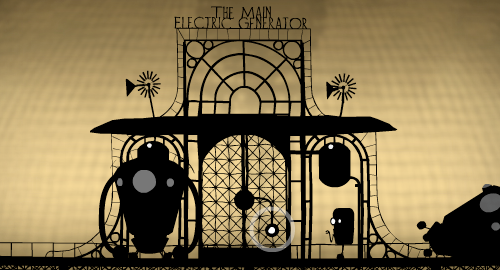
Little Wheel [Flash]
Many game bloggers have tackled the subject of adventure games and their unfortunate fall from grace in mainstream gaming. It’s quite possible that the golden age of Lucasarts was the artistic peak for traditional adventures. However, enterprising developers are breathing new life into the genre by switching to a shorter format. While some companies are exploring this new niche by releasing episodically, indie developers such as Vector Park, Amanita Design and OneClickDog are creating short self-contained adventure stories.
OneClickDog’s latest release is Little Wheel, a 15 minute flash game about a brave little robot who is tasked with reviving a dead world. The protagonist is animated in a way that’s as charming and expressive as Wall-E, and the artwork is drawn in striking silhouette. It also features a terrific low-key jazz soundtrack.
Beyond its aesthetics, Little Wheel is an adventure game that isn’t shy about rewriting genre rules. On-screen elements that can be interacted with are clearly circled in white, eliminating the need to hunt pixels. There is no inventory, and each puzzle is confined to a single screen. It’s not a particularly challenging game, but it also isn’t difficult for the wrong reasons.
Little Wheel is a charming title that’s well worth spending a lunch break to explore.
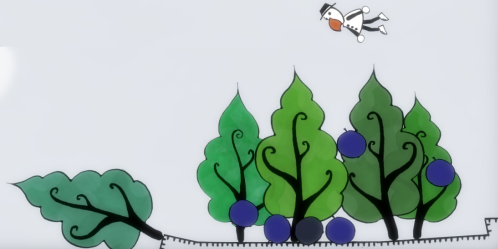
Blueberry Garden [PC]
Blueberry Garden took the grand prize at this year’s IGF, and was finally released earlier this week. With its hand drawn graphics and zen atmosphere, it’s very obviously an indie title (though it falls short of a bingo). However, its gameplay is anything but typical. The goal of the game is to shut off the faucet that’s slowly drowning the garden. More fundamentally, Blueberry Garden is a game about exploring, and it introduces two innovative twists on the formula.
Firstly, the avian gentleman’s powers are tied directly to the garden that he inhabits. He gains abilities by consuming the fruit of local trees. The player can spread their seeds, planting new trees in strategic locations to overcome obstacles. Furthermore, many of these powers manipulate the garden’s terrain, raising or contracting it. The world of Blueberry Garden is an organic entity that shifts and changes with the player’s actions.
Secondly, the game uses a distinctive system to unlock new areas. Rather than impede the player with locked doors, Blueberry Garden uses altitude to divide the map. The avian gentleman assembles the objects he finds in the world (cameras, tomatoes, pencils) into a tower of stuff, which in turn allows him to glide to new ledges. The unique vertical level design unites with the flying mechanic to form a truly exceptional platformer.
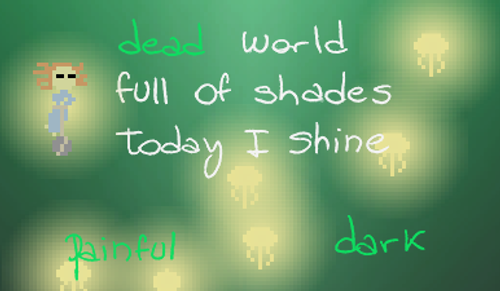
Today I Die [Flash]
I find Daniel Benmergui to be one of the most personally inspiring independent game developers. His games are minimalist and offbeat, strongly authored yet loose and free form. His most recent title is Today I Die, a game “about the daily choice of waking up in the morning.” He elaborated on this concept in an interview with Rachael Webster:
“We are conditioned to look at life as a series of milestones and achievements, so anything that is not one of those seems to be irrelevant. Like, what you do every day. The game is not about someone who suddenly changes her life in a single, spectacular moment like movies show people doing. It’s about a constant choice, an everyday choice.”
Today I Die is an interactive poem. Words can be swapped out and rearranged, and changes in the text are reflected in the world. Conversely, actions in the world generate new words for the player to manipulate. The unusual gameplay can take a little while to get the hang of, but take Corvus’s advice: “don’t read it like a game, play it like a poem.”
Zeno Clash [PC]
ACE Team’s Zeno Clash is a harbinger of a new class of games, dubbed Single-A games by designer Steve Gaynor. Falling somewhere between lo-fi indie and professional mainstream, they often showcase the graphical fidelity of the latter while maintaining the team size of the former.
Zeno Clash is a first person brawler built on Valve’s Source engine. It’s set in a dark “punk fantasy” world inhabited by a unique cast of strange and wonderful creatures. Among them are Father-Mother, a tall hermaphrodite creature with a very protective family, the Corwid, insane hermits who refuse to be slaves of reality, and the Hunter, a blind mercenary who commands explosive rodents. It’s a wonderfully imaginative setting, and ACE does a great job of slowly establishing the world and its inhabitants.
While I very much enjoy the game’s first-person fistfights, there are a few limitations. For instance, the guns come in two varieties: underpowered and overpowered. Neither camp strikes a good balance with the melee combat. Also, the ‘E’ key is mapped to far too many functions: locking on/off, changing targets, picking up weapons and eating fruit. A game that often demands precise timing deserves equally precise controls. However, these are minor qualms and the brawling mechanics are fundamentally solid and fun.
I started Zeno Clash with very high expectations, and it somehow managed to meet and exceed them. Hopefully the upcoming Xbox 360 port will expose this great game to an even wider audience.

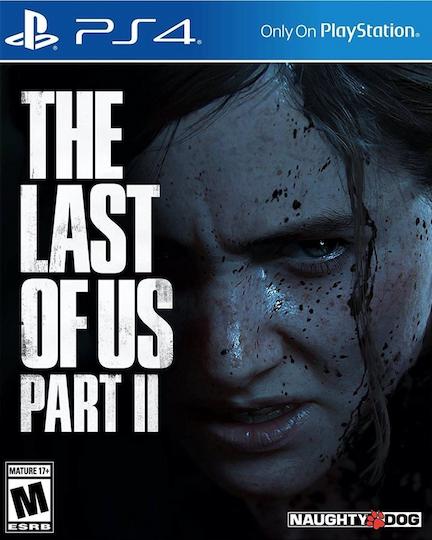
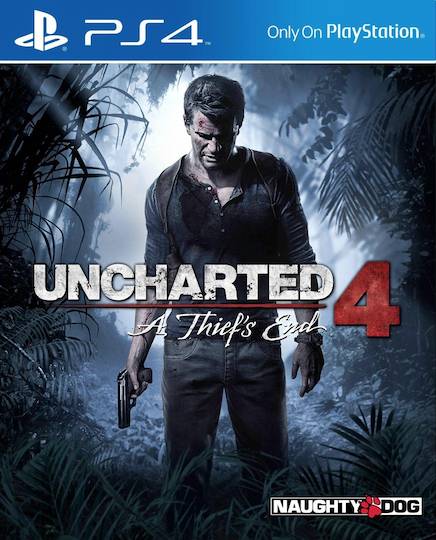
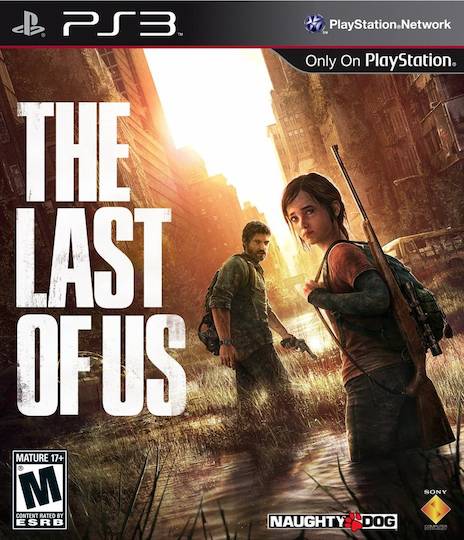
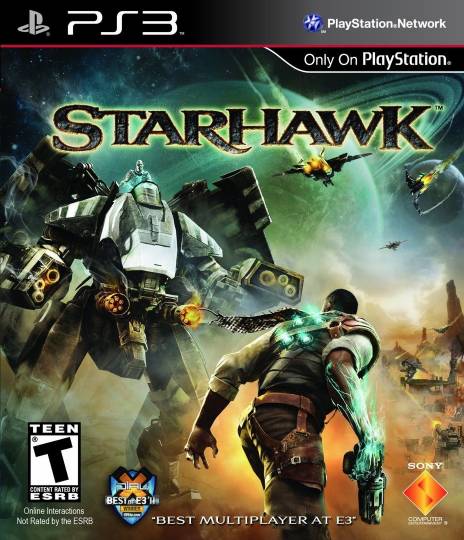
June 15th, 2009 at 2:45 am
I played Today, I Die and found it one of the best and most enthralling indie games I’ve seem in a long time. I am currently finding a way to make a donation (funds willing).
June 15th, 2009 at 3:24 pm
I loved Today I Die, but calling it a game felt odd. Like calling the Path a game just doesn’t seem to describe it properly. The association for the word “game” is so broad right now that it’s hard to discuss these things with a wider audience. I’m going to start busting out “telepoetry” in casual conversation and act like I didn’t just make it up.
June 19th, 2009 at 7:11 am
@Gerard: His patronage model is interesting, I hope it works out for him.
@thesimplicity: Today I Die seems much more game-like than The Path to me. If we’re looking for a new term though, I’m down with “software art”. Of course, as a programmer I’m probably biased.
June 23rd, 2009 at 4:58 am
These are fun and well-written features, I hope you keep them up (even though I already played all your suggestions, hehe). The catalog of great indie games is taking colossal dimensions, and a shortage doesn’t seem likely to happen soon.
June 25th, 2009 at 7:50 am
@Louis: Thanks! I’ll try to find a more obscure selection for you next time ;)